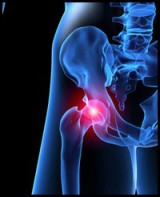According to the Bureau of Labor Statistics, tendonitis causes more than 70,000 people to miss work per year. This is just one of many reasons why it is important to understand the symptoms of tendonitis so that you can avoid not only the pain but the inconvenience it...
LATEST BLOGS
Husband and Wife of 54 Years Undergo Joint Replacement Surgeries On The Same Day
Premier Orthopaedics surgeon, Dr. Jonathan Garino, performed back-to-back procedures on a couple who have been married for 54 years! They shared their same-day surgery journey at the MUVE Center with @6ABC. Watch the incredible story below. Read the full ABC6 story...
What are Non-Surgical Treatment Options for a Herniated Disc
The spine consists of 26 bones called vertebrae and between them are cushion-like pads called “intervertebral discs”. The discs serve as shock absorbers for the vertebrae and help provide stability to the spine. When one of these intervertebral discs loses its normal...
Why Would I Need to See an Orthopaedic Doctor?

Do you suffer from long-term tendon, muscle, or joint pain? Do you have chronic back problems? There are more than 28 million Americans who develop some type of musculoskeletal problem each year. These problems include, but are not limited to, sprains, strains, and overuse injuries, as well as knee, shoulder, and back pain.
Many people believe that the only solution for these issues is medication. They may have never asked themselves the question: Do I need to see an orthopaedic doctor?
An orthopaedic doctor specializes in issues, diseases, and injuries pertaining to the musculoskeletal system. These doctors play a critical role in the diagnosis, treatment, prevention, and rehabilitation of musculoskeletal conditions. Orthopaedic doctors work in both hospitals and specialized practices to treat infections, sports injuries, broken bones, joint problems (e.g., arthritis), congenital conditions, degenerative conditions (e.g., osteoporosis), and bone tumors. They handle everything from minor issues such as a sprained ankle to complex procedures and surgeries such as a hip replacement.
If you are experiencing any type of pain in your ankles, knees, hips, shoulders, or back, you should consider seeing an orthopaedic surgeon. Symptoms may include any of the following:
- Difficulty using that particular body part to perform daily functions (e.g., walking up the stairs or carrying grocery bags)
- Pain in muscles, tendons, or joints that persists for more than a few days
- Joint pain that becomes more intense during periods of rest
- Swelling or bruising around the joint or the location of an injury
- Limited range of motion, such as an inability to straighten the back
- Joint deformity
- Signs of infection including heat, inflammation, fever, and/or redness
- Any unusual symptoms in the pain region
Orthopaedic doctors use surgery as a last resort for musculoskeletal issues. They do everything that they can to delay it as long as possible in favor of less invasive treatments such as medication and physical therapy. When these treatments no longer provide relief for pain and other symptoms, they may recommend surgery. Some of the most common surgeries that orthopaedic doctors perform include back surgery, and ankle, knee, shoulder, and hip replacements. They also perform a variety of arthroscopic procedures, which allow them to visualize, diagnose, and treat problems inside of a joint.
The earlier you are able to get advice about a musculoskeletal issue, the sooner you may be able to start treating the problem. Early treatment prevents an issue from becoming even more severe. During an initial consultation with an orthopaedic doctor, he or she will isolate the problem, narrow down the cause of the issue, and explain your treatment options. You may also get advice about pain management including medication and/or injections, rehabilitation and physical therapy including a potential time frame, and ongoing

